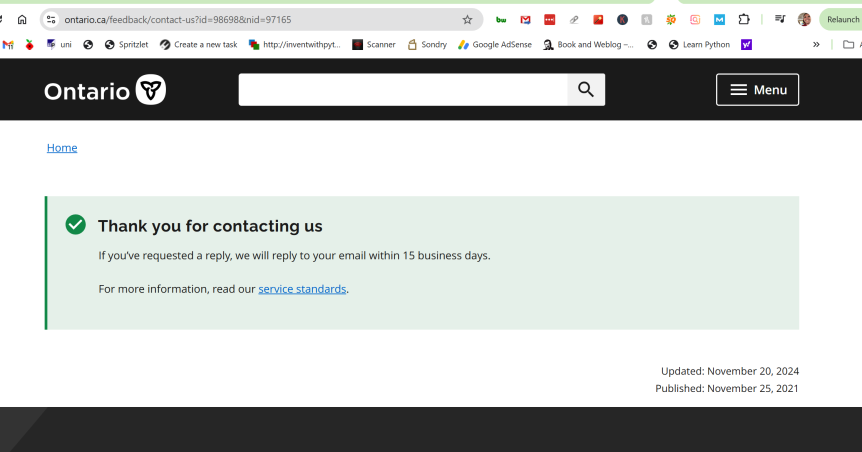
Ontario’s Education Minister’s Office Creates Multiple Barriers for Citizen Engagement
In what appears to be a growing pattern of limited accessibility to elected officials, an Ontario resident has encountered multiple roadblocks while attempting to communicate with Education Minister Jill Dunlop’s office, raising questions about democratic accountability in the province.
The citizen, who attempted to reach the Minister through various official channels, faced a series of automated responses and restrictive policies that effectively prevented any meaningful dialogue with the elected official responsible for Ontario’s education system.
Upon contacting the Minister’s email address, the citizen received only an automated form response that failed to address their specific inquiry. When attempting to engage through the Minister’s constituency office, they were informed that responses were limited to local constituents only, effectively barring communication from the vast majority of Ontario’s 14.5 million residents who fall outside the Minister’s riding.
Further attempts to connect through the Ministry’s official web portal resulted in a notification of a 15-day response window, while phone calls to the office went unanswered. These barriers raise significant concerns about the accessibility of elected officials and the state of democratic engagement in Ontario.
“The inability to communicate with elected officials who make decisions affecting all Ontarians is deeply troubling,” says Dr. Margaret Wilson, a former political science professor at York University. “When ministers are effectively insulated from the public they serve, it creates a democratic deficit that undermines the basic principles of representative government.”
The situation highlights a broader issue in Canadian politics: the growing distance between elected officials and their constituents. While constituency offices traditionally serve as a bridge between citizens and their representatives, the practice of limiting communication to local residents could be seen as contrary to the broader responsibilities of cabinet ministers, whose decisions affect all provincial residents.
Legal experts note that while there are no specific laws requiring ministers to respond to public inquiries, the practice of limiting access raises ethical concerns about government accountability and transparency.
Citizens seeking to engage with government officials who face similar barriers have several potential recourse options:
Contacting their local MPP to raise concerns about ministerial accessibility
Filing formal complaints with the Ontario Ombudsman
Organizing collective action through community groups or educational advocacy organizations
Engaging media outlets to highlight systemic barriers to government access
Utilizing social media platforms to raise public awareness about accessibility issues
The Ministry of Education’s communications department did not respond to requests for comment on their constituent communication policies by press time.
This situation underscores a growing tension between the efficiency of government operations and the fundamental right of citizens to engage with their elected officials, particularly those whose decisions affect critical public services like education.
